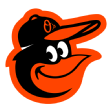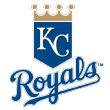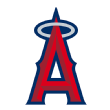Only one team will win this year's World Series, but many more will be happy with the season to come. Teams will surprise themselves, build toward something bigger or find joy in events that are not directly followed by a huge municipal parade.
But each team's idea of success will be different. We now set out to define what a happy season could look like for each major league team. We use as our guide the wisdom of the long-dead British philosopher Jeremy Bentham, who wrote, "Nature has placed [baseball fans] under the governance of two sovereign masters: pain and pleasure." The whole of human emotion, with all its nuances and gradations, can fit under these two umbrellas. So it is with 30 teams: Success can be defined by pleasures gained, as it can by pains avoided.
What follow are the success floors for all 30 teams. Each team gets two paths to happiness: One is on the pleasure scale, related to an accomplishment achieved. The other is on the pain scale, related to a sadness avoided.
Jump to a team:
American League
National League
The superteams
Boston Red Sox
 How to find pleasure: Beat the Yankees.
How to find pleasure: Beat the Yankees.
The Red Sox just had the perfect season, maybe the most enjoyable, drama-free, unblemished season this torture sport has ever allowed. Sure, it'd be fun to somehow top it, but a team that can't be satisfied with 108 happy wins and a happy romp through the postseason is chaining itself to the hedonic treadmill. The Red Sox will almost certainly be worse this year. They will probably not even win the World Series. They will be OK with that. After eating 10 cupcakes, the 11th has very little marginal value, as far as the sugar rush goes.
However! While there's little else for the Red Sox to accomplish, there remains a lot for the Red Sox to deprive the Yankees of. This might not seem like much to you because you aren't taking the idea of rivalry seriously. You think it's all a big act and that in truth nobody on the Red Sox cares if the Yankees are happy or sad. But I'm giving them some credit. I think they legitimately hate the Yankees. I think they would do everything they can, within the bounds of what they could get away with, to ruin the experience of wearing or cheering for pinstripes. If the Red Sox ever want us to believe that this rivalry is more than just a marketing promotion, this is the year for them to take it seriously and bury the Yankees. A successful season is one win more than the Yankees and at least one more game played than the Yankees. Anything else, and the 2019 Red Sox will have been owned.
How to avoid pain: Win the World Series.
Los Angeles Dodgers
 How to avoid pain: Clayton Kershaw stays healthy and good.
How to avoid pain: Clayton Kershaw stays healthy and good.
His injuries are getting a little more disruptive each year, his peripherals a little worse each year, and with Kershaw starting the season on the injured list, we're dealing with the bleak reality that nothing is guaranteed for his career anymore. Thirty-one years old is simply too young for all-time greats to enter steep decline or permanent discomfort. Thirty-one years old leaves too much time for the sort of legacy-diminishing moroseness that drags on and on and on. This obit is premature, to be sure, but I don't think anybody in baseball can handle being miserable about Clayton Kershaw right now.
How to find pleasure: Win the World Series.
It's impossible to gauge the success or failure of the Dodgers' past few seasons without knowing how this current era ends for them. If it ends without any World Series victory, then it's a disaster: literal billions of dollars spent, a decade as the preseason favorites, an entire career of Clayton Kershaw and still no ring, still an entire generation raised without seeing the West Coast's richest team win a title. In that case, all of this regular-season winning will backfire, and it'll make this title-less run look more cursed. The higher the peaks of Corey Seager and Walker Buehler, the more records set by Kershaw or Cody Bellinger, the more solemnly historians will memorialize these Dodgers' ultimate failure. If they aren't going to win a World Series at some point in this run, they should probably just start winning 84 games like a normal team. Ambition, I've found, can lead only to failure.
If the Dodgers do win one during this run of uninterrupted excellence, then all of this will be remembered as a golden age of Dodgers baseball, and architect Andrew Friedman will probably make the Hall of Fame. Even the two World Series losses that seemed so heartbreaking will be evidence of how consistently awesome the Dodgers were. The future has a way of retconning a lot of our emotional memories.
Which is to say, to have a successful season in 2019, the Dodgers need to (a) be good and (b) win the World Series sometime. Maybe this year. Might as well be this year.
Houston Astros
 How to find pleasure: Win 104 or more games.
How to find pleasure: Win 104 or more games.
Once you accomplish a lofty goal, it is healthy to set another lofty goal and also to take the time to be proud of yourself, to memorialize your accomplishment and to appreciate that we are not meant to live our lives on an endless, unsatisfying treadmill of desire. The Red Sox, for instance, won the World Series last year and can reasonably relax. The Cubs won a World Series not long ago and, truthfully, probably don't have that much to care deeply about this year. But I'm not sure the Astros' goal was ever to win the World Series. I think it was to go down as the smartest baseball team that ever was. The Astros don't want to have a book written about them. They want books -- plural -- textbooks, history books, self-help books, religious tracts. They want to be the first baseball team on Mars. The Astros have a sort of perfectionism about the way they run their operation that won't be satisfied by one season (anybody can get lucky in a season) or even a run of seasons. It will be satisfied only by maintaining a level of dominance so sustained that the rest of the league eventually must submit and try to copy them. The Astros want to be invincible; they want every team to try to do baseball exactly like they do -- and fail.
Basically, they want to be the Golden State Warriors. We all have goals, and I'm not here to judge theirs. But the World Series was merely a mile marker along the way, as was the Astros' exceptional regular season last year: 103 wins (after winning 102 in 2017) and a 109-win run differential. Now they need 104, which is a lot. Only four teams have done it since the turn of this century. But anything short of 104 will mark them as a team in decline, and a rocket ship in decline is ... not on its way to Mars.
How to avoid pain: Win the World Series.
New York Yankees
 How to find pleasure: Win the American League East, with a pile of good individual outcomes for their young stars: an .800 OPS for Gary Sanchez, a healthy comeback for Luis Severino, a couple of MVP votes for Gleyber Torres.
How to find pleasure: Win the American League East, with a pile of good individual outcomes for their young stars: an .800 OPS for Gary Sanchez, a healthy comeback for Luis Severino, a couple of MVP votes for Gleyber Torres.
If you read old accounts of tape-measure Mickey Mantle home runs, there are always these outlandish claims that a 470-foot home run was still rising when it hit some façade or crossed out of the stadium. The Yankees have to feel a little bit like that right now: They're an incredibly good team (100 wins last year, 100-win run differential the year before), and more than any of the other superteams here, they're still rising, with young stars in the majors, a plausible next wave of top prospects, a deep and basically flawless major league roster and a fairly clean payroll going forward. The Yankees might actually be the team most likely to be happy this year, as they're all but certain to be very good (and very fun) but without much urgency to win it all right this second. This team would probably be very satisfying as long as no obvious tears in the fabric develop: James Paxton and Severino (eventually) are healthy, one of Luke Voit or Greg Bird plays well enough to earn a strong projection for 2020, Clint Frazier has a nice second half, and it all, basically, keeps rising.
How to avoid pain: Go to the World Series.
If there's one thing that's hard to pin down, though, it's whether that previous sentence -- "without much urgency" -- is itself the loss. In many previous generations, the sport's finances tilted so steeply in favor of the Yankees that they could go into the year the favorites against the field. They went to 29 World Series in 44 years. Even in the 1990s and early 2000s, George Steinbrenner was close to rational in demanding a World Series more years than not and promising it, too.
It's a different experience being a Yankees fan now. They can't walk around with the certainty of Yankee exceptionalism anymore. The sports has changed, and the Yankees of 2019 have to be more realistic. They're part of the rest of the world now. They have to scrap for their titles, like everybody else. It has been a decade since they went to the World Series. They're practically normal.
The contenders
Cleveland Indians
 How to find pleasure: Win the World Series.
How to find pleasure: Win the World Series.
The rule is, if you have the longest franchise drought in the game -- this is Year 71 for Cleveland -- we get to make a big deal out of each lost season that passes. Sorry to get really dark in the middle of your morning, but about 17,000 people in the Cleveland metro area will die this year, and with the average lifespan in the United States being 79 years, we're getting to the point where many of those departed Clevelanders will have never interacted with a world championship baseball team. This sport promises us nothing, but atop the list of things it should promise is "at the very least, one championship in your lifetime." One is everything. The first is the happiest you can get in this sport.
How to avoid pain: Win the division and look better at the end of the season than at the start.
Consider the AL Central for a minute. Last year, Cleveland won the division (which was terrible) easily and took home 91 wins. But a big share of those 91 wins came at the expense of division mates (who were terrible). Cleveland went 49-27 against the AL Central, which prorated over 162 games would equate to a 104-win team. Against the rest of the league -- against the real baseball teams -- the Indians were 42-44, which would be a 79-win team over 162 games. Lest you think this an insignificant quirk, of which smaller-sample splits will always produce many, look at the entire division:
Twins: 90-win team inside division, 68-win team outside
Tigers: 70-win team inside division, 58-win team outside
White Sox: 64-win team inside division, 60-win team outside
Royals: 77-win team inside division, 41-win team outside
We've established two things: Last year's Indians probably weren't very good, compared to the other AL playoff teams. And since none of the other four teams in the division did much to upgrade, this year's Indians probably don't need to be very good to make the playoffs. Cleveland spent the offseason getting a little bit worse -- and getting cheaper -- by trading Edwin Encarnacion, Yan Gomes and Yonder Alonso. Free agents Michael Brantley, Andrew Miller and Cody Allen all signed elsewhere, and Cleveland replaced them with no free agents of note. The Indians are baseball's first Vickrey Auction, attempting to win the division by exactly one game no matter how bad the second-place team is. You can admire the imagination (while worrying about how it fits into baseball's larger economic and labor trends), and maybe it'll work. They should win that division. The postseason is not entirely a crapshoot, but it does have crapshoot-like tendencies.
It'll be very embarrassing if it fails, though, and it could fail either by Cleveland somehow undershooting and missing the playoffs or by Cleveland emerging from this season in worse shape for the next.
Chicago Cubs
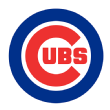 How to find pleasure: Win the division.
How to find pleasure: Win the division.
The 2015 Cubs won 97 games and had the third-youngest lineup in the game, the best farm system in the game and a payroll at least $60 million below their means. That was supposed to be Year 1 of a many-year dynasty. What's undeniable is that, so far, it has been a great run: They've won the most games in baseball over the past four years, and only the Dodgers have played more postseason games in that time. The Cubs have little to prove.
But "failure is a feeling before it becomes an actual result," a famous Chicagoan once said, and despite coming off a 95-win season with the still-not-old core of their 2016 world champion team mostly intact, the Cubs are fending off the feeling of failure. Some projection systems see them as the clear favorites in the National League Central, but others see an 84-win team or even, if you can believe it (many don't), a sub-.500 team. The elite pitching of that 2016 club hasn't been the same since 2016, with some velocity drops, some normal aging curves, some unhelpful catchers and a couple of big acquisitions that went bust. Plus, last year's offense collapsed in September.
It's perhaps worth looking at the last cursed team Theo Epstein uncursed. The Red Sox won the 2004 World Series, then won 95 games but exited the playoffs quickly in 2005, then won 86 games and missed the playoffs in 2006. Their three-year trajectory was a lot like these Cubs'. They weren't a bad team, those 2006 Red Sox, but failure was a feeling. Then they won the 2007 World Series.
How to avoid pain: Yu Darvish is good and healthy; Kris Bryant is an MVP candidate.
Not all disappointment is equally frustrating. Two of the most frustrating ways to fail are to have a very famous player around who is paid a lot, under contract for a long time and has never been good for your franchise and to have a star who is still quite good but, because he used to be even better, somehow ends up drawing the blame for his team's failures. These make for the talk-radio controversies, the grumpy columnist takes and the occasional (or frequent) boos. They make it easy for fans to dehumanize their targets and for players to feel that the fans don't understand how hard this all is. They create a breach, basically. Darvish, one disastrous season into a six-year deal, need not become the former. Bryant, who was on yet another MVP pace last year before a shoulder injury soaked his power, certainly need not become the latter. Both are just fighting momentum this year.
St. Louis Cardinals
 How to find pleasure: Make the playoffs; get an MVP-level season out of Paul Goldschmidt.
How to find pleasure: Make the playoffs; get an MVP-level season out of Paul Goldschmidt.
The past three years, the Cardinals have won 88, 83 and 86 games. If those same 257 wins had been slightly reorganized to, say, 90, 80, 87, they'd have made the playoffs twice, and these three years would be seen as part of the roughly 100-year run of Cardinals awesomeness. Instead, it's the team's longest playoff drought since the late 1990s. The Cardinals are not going to win 105 games this year -- this isn't the best Cardinals team ever, to be sure -- but they can keep doing basically what they've been doing and have it work out slightly better this time instead of a little worse (i.e., life).
How to avoid pain: Make the playoffs; get some hot innings out of Alex Reyes.
Reyes was arguably the best pitching prospect in baseball before the 2016 season. He reached the majors that year and was outstanding; he has the lowest career ERA in history, minimum 50 innings. Yet three years later, he has still thrown exactly 50 innings. He still qualifies for prospect lists, incredibly. He's now a slightly worse prospect and a three-years-older one, and he's maybe not quite as hard a throwing one, with the wear of two surgeries (elbow and lat) on his body. He has thrown only 23 innings, across all levels, the past two years. But he has allowed zero runs in those 23 innings, and at this point, nobody has any idea: The Cardinals could end this season with one of the 10 best pitchers in baseball or with another surgery to perform and virtually nothing left to bank on. That's the range of realistic outcomes here.
For added significance: Reyes was one of the Cardinals' prospects in 2014, when the club was coming off a World Series title in 2011 and a second appearance in 2013 and had one of the top farm systems in baseball. They were, in other words, poised to be the team of the next half-dozen years. It didn't work out that way. That system produced some good teams but a bunch of missed postseasons, and now Reyes is the last big prospect hanging around from the group, ready perhaps to redeem what once was.
Washington Nationals
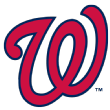 How to avoid pain: Make the playoffs.
How to avoid pain: Make the playoffs.
If the Nationals are bad this year, then what will happen retroactively is that the Bryce Harper era will be assigned, 2012 through 2018. It makes sense as a block: Harper showed up, Washington had its best run of very good teams, Harper left, and the golden years ended (particularly so if the Phillies win the division this year, with Harper). Those seven seasons might have been the golden years, but they were also ultimately unsatisfying. That's lousy. It's lousy when your franchise's golden years are so tinged with and defined by disappointment: the managerial and closer carousels, the early exits from the postseason, injuries to Stephen Strasburg and even the failure of Harper to regularly replicate his peak performances. Lousy, lousy.
But if the Nationals are good this year, then there will never have been a Bryce Harper era. Those years will simply be rolled into the Strasburg era or maybe the Mike Rizzo era, which will keep trucking along well into the future, picking up division titles along the way and maybe, eventually, ending in a World Series parade. No disappointment at all! They will be golden years that included the greatness of Bryce Harper rather than being defined by Harper's failure to take his team all the way.
How to find pleasure: MVP votes for Juan Soto.
Soto is going to the Hall of Fame, folks. Lots of bad things could still stop that, but he just had the best age-19 offensive season since Fred Carroll in 1884, and if you just look up guys who were even pretty good at 19, you'll see what a strong bet Soto's HOF case is. The goal now for Nationals fans is to see as much of his greatness as early as possible, so that (a) it comes in a Nationals hat, and his HOF plaque also has a Nationals hat and (b) his historical greatness is hit-you-over-the-head obvious, and thus easier to notice, appreciate and share with your friends and neighbors. If Juan Soto is who we think he is, he's a civic institution. The collective recognition of him is what cities are built on.
Philadelphia Phillies
 How to avoid pain: Bryce Harper hits .283/.410/.543.
How to avoid pain: Bryce Harper hits .283/.410/.543.
I won't be the only person to note that Philadelphia is a demanding town, that 13 years (with no opt-outs and a no-trade clause) is a long time, that Bryce Harper is sometimes superhumanly good but sometimes merely average and that the colorful self-confidence that makes him so delightful also makes some people want to punch him.
But barring a World Series this year -- very possible -- this season offers more potential downside than upside for Harper and the Phillies. He certainly doesn't need to be his very, very best self this year. But if he's the 2016 version of himself -- or maybe the 2018 -- it's going to be a test of everybody's character.
How to find pleasure: Win 88 games or more.
The 13 years put a lot of pressure on Harper. But they take a lot of pressure off the rest of the Phillies. This core is young and still not paid that much; the Phillies are both improving, collectively, as a roster, and likely to improve with more front-office spending. Thirteen years is a way of reminding everybody that Philadelphia is going to be playing baseball for a long time, and there are going to be good players -- at least, one very good player -- on those teams for that long time. They don't need to win two titles this year, in other words.
Milwaukee Brewers
 How to find pleasure: Make the playoffs.
How to find pleasure: Make the playoffs.
How to avoid pain: Have a winning record; end the season with Orlando Arcia's OPS over .750 and Keston Hiura in the lineup.
One of the hardest challenges for small-market teams is keeping their post-rebuild competitive windows open for as long as, say, the Cubs and Nationals have kept theirs open. The Brewers probably aren't on track to build up to anything significantly better than what they are -- a 96-win team last year and a solid bet for the high 80s this year -- but at the end of this season, they could be looking at three or four more solid seasons, with Lorenzo Cain, Christian Yelich and Travis Shaw all signed long term, and the two young middle infielders Arcia and Hiura aging toward their primes. Or the Brewers could be looking at much worse. Arcia could have a second disastrous offensive season in a row, Hiura's rapid prospect ascent could stall against major league pitching, Cain and Shaw could each start looking older than they did yesterday, and an injury-prone rotation could be gutted by a new wave of injuries. The Brewers don't need to win it all this year to feel good, but they probably need to win 82 and bank a pretty good 2020 lineup to feel optimistic. Calls to tear down come more and more quickly these days, especially in smaller markets.
The bubble teams
Atlanta Braves
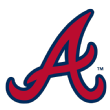 How to find pleasure: Copy everything from the Juan Soto paragraph up there, change a few words to apply it to Ronald Acuna Jr., and paste it here.
How to find pleasure: Copy everything from the Juan Soto paragraph up there, change a few words to apply it to Ronald Acuna Jr., and paste it here.
How to avoid pain: Of all the teams that brought self-inflicted cellar-dwelling upon themselves this decade, the Braves might trail only the Astros in how much patience they asked of their fans. The Braves tore down what was essentially a first-place team after one bad half-season, firing the entire front office and trading a bunch of aesthetically pleasing, young or youngish stars who were under team control for a long time. (They could still have Andrelton Simmons at shortstop this year and next, had they wanted to.) But the Braves had a plan, the plan brought them through three 90-loss seasons, they emerged on the other side with a solid-enough 2018 season, and then ... they almost immediately got lapped by three other teams in the division. At least, that's what the projections say.
Now, that's only one way of surveying where the Braves are. Most projection systems have the Braves just behind the Mets, Nationals and Phillies in a very competitive NL East. They're right in the thick of things and could very easily win the World Series this year, or they could keep promoting prospects from a deep system until they win one. That's the plan. But the Braves were fairly passive this offseason, and they have a lower payroll (by some accounting) than the Reds and Diamondbacks. They could just as easily win 82 to 86 games in each of the next three seasons and emerge, for all they put their fans through, with just the one postseason series to show for it all. The chances of An Open Letter Of Apology From Our Owners To You, The Fans after the 2021 season remains disconcertingly non-zero.
Oakland Athletics
 How to find pleasure: Play games that matter in the final week of the season.
How to find pleasure: Play games that matter in the final week of the season.
I'm not sure any team in baseball gets more out of a pennant race than the A's, and it barely matters whether the race ends up in the playoffs or in the final week of the season. The goal is simply to have the games matter. No ballpark offers less in amenities and experience than Oakland Coliseum, which means the fans are there for one reason only: to see the A's win a game, especially one that counts. The mood of the park shifts with the score, as it should; the attention in the park is on the game, as you'd wish. When the A's win, the place starts to fill up a little bit. The past three years, the A's were noncompetitive in 2016 and 2017 but competitive in 2018. Here's how early-season (April/May) and late-season (August/September) per-game attendance changed:
2016: 18,800 early; 18,000 late
2017: 16,600 early; 16,000 late
2018: 14,400 early; 22,100 late
Folks: This is all A's fans have, and they know it, and they respond to it. One of the easiest ways to raise the cumulative amount of happiness in the baseball world, I'm convinced, is to give Oakland a pennant race.
How to avoid pain: Win 83-plus games; close the year with a healthy, effective Jesus Luzardo/A.J. Puk combination in the rotation.
The A's were incredible last year, but it came more or less out of nowhere, and it wasn't the result of One Easy Trick To Make Your Team Win 97 Games Whenever You Want. Rather, about a dozen NBD transactions all turned out to be unexpectedly profitable. Unfortunately, "Find this year's Edwin Jackson. Wait, did you say Edwin Jackson? Are you sure you meant Edwin Jackson?" is extremely hard to replicate, and while the A's do it every so often, it's even hard for them to replicate. (See: 2015-2017, 2007-2011). But they have the potential to pull off a more repeatable trick this year, which is building a young rotation with a couple of proverbial "dangerous in October" aces at the top of it. Those would be Luzardo -- the game's best lefty pitching prospect, whose push to join the rotation in April was repelled by a shoulder injury -- and the strikeout beast Puk, who could return from Tommy John surgery around midseason.
Colorado Rockies
 How to find pleasure: Play at least one game that counts the final weekend of the season.
How to find pleasure: Play at least one game that counts the final weekend of the season.
After consecutive playoff appearances (a wild-card loss and a wild-card win followed by a division-series sweep), it's tempting to think the Rockies need to make the playoffs and go deeper to consider this year a success. But this is a franchise that has, in its history, only four seasons with 84-plus wins, and two of them have come in the past two years. This is already the best sustained run in Rockies franchise history, and with a much more advantaged team ahead of them in the division (the Dodgers) and nine teams in the other two divisions that could win a wild card, it's realistic to hope for, but not count on, a playoff spot this year. Put it this way: The Rockies' franchise record for wins is 92. It might take more than that to get Colorado into the playoffs this year. But the Rockies don't really need to. Simply good baseball counts as success for a franchise still trying to find its balance.
How to avoid pain: 500 innings, sub-3.75 ERA for Kyle Freeland, German Marquez and Jon Gray, with at least one getting Cy Young votes.
The Rockies' existence now rounds up to three decades, and it is still almost entirely defined by the club's inability to solve the effects of altitude on its pitchers. The first Rockie ever, the first player taken in the expansion draft, the first Opening Day starter, was an elite pitching prospect (David Nied) who was out of the game entirely by 28, the first victim of altitude. Since then, the Rockies have been on an increasingly hopeless (it appeared) quest to defeat physics, trying every type of pitcher, every type of player acquisition, different pitch repertoires, different pitcher usage patterns, different accommodations, failing and failing and failing until ... last year, when Freeland had the best pitching season in franchise history, and Marquez was in the top 10. Only one team in baseball got more WAR out of its top two starters, and in the second half, they were each among -- oh, the five best pitchers in baseball, probably. Bobbing alongside them was Gray, often dominant if also befuddling, and, for that matter, Tyler Anderson, who has three seasons in the majors and all three of them with a better-than-average park-adjusted ERA. This is a real staff, all homegrown and all under club control for years to come. It would also be so, so easy for them all to collapse and all hope to collapse with them.
New York Mets
 How to find pleasure: Fifty-five starts from Jacob deGrom, Noah Syndergaard and Zack Wheeler.
How to find pleasure: Fifty-five starts from Jacob deGrom, Noah Syndergaard and Zack Wheeler.
There is no more painful way to be bad than to have a terrible closer, and the Mets -- having traded for Edwin Diaz, last year's AL Reliever of the Year -- should be safe from that fate for at least one season. There is no more joyful way to win than to have a couple true aces, the sort of aces you can build popular rhymes and labor stoppages around. The Mets could have three of those guys if deGrom can repeat even 90 percent of his 2018 season, if Syndergaard stays healthy and if Wheeler's final 10 starts (1.59 ERA) were predictive. Pleasure is so much better with anticipation, and deGrom, Syndergaard and Wheeler starts could/should give Mets fans many hours of anticipation before each game.
How to avoid pain: 86 wins, preferably evenly spaced out.
We often talk about transition years for rebuilding teams, in which the urgency isn't so much to win a World Series as to cross that mental bridge from sad-sack losers to contenders. The Mets haven't been rebuilding, exactly, but they've been in punchline territory for the past decade for a lot of reasons -- weird and poorly diagnosed injuries, front-office members insulting players for no good reason, Madoff-induced austerity budgets not befitting a big-market team, late-stage Matt Harvey and, above all, the fact that they've had two winning seasons in the past 10. This is the fresh-start year: new general manager, lots of new and unorthodox front-office hires, a bunch of new, famous players, a lockdown closer, deGrom's contract extension. The Mets are taking control of their lives. They should be pretty good, maybe 90-win good, and that should be enough to clear the smell out of the room. Whether the Phillies or Nationals win 97 games and keep the Mets out of the playoffs shouldn't determine whether this team gets to feel good about itself this year.
Tampa Bay Rays
 How to avoid pain: Win the AL East with 95 or fewer wins.
How to avoid pain: Win the AL East with 95 or fewer wins.
The Rays are not in a position to win 96 games anytime soon, and the most crushing thing that could happen to them is the Red Sox and Yankees going through a prolonged period of uncatchable dominance. Which looks like it's happening.
How to find pleasure: Any winning record and at least three moves -- trades, pickups, new strategies or player development successes -- that pay off and feel smart.
There are three main inputs from which fans draw a sense of satisfaction. One is nearly permanent: It's the team's sense of self-identity. Are you proud of them, or do they embarrass you? The second one is mostly stable within a season: Do the games matter? Are they worth turning on, is there a race, do I have a reason to care? The third one changes every day, sometimes many times a day: Are they winning this game or losing this game? Those daily outcomes are ephemeral, but they also come at you constantly and start to pile up.
The Rays, more than any other organization, seem to be perpetually (and currently) right there on the fence by all three scales, leaning ever so slightly to the "satisfying" side. Their larger sense of self-identity is "smart, plucky team that does more with less than any team in baseball." But that's only narrowly their self-identity, and it could easily slip into "hopelessly outgunned lower-class team with few fans and a near-amoral enthusiasm for underpaid assets." The Rays have avoided tanking and are usually within single digits of a playoff spot, but they also don't really chase after playoff spots, and they haven't played a postseason game in the past five years. Also, the past five years, they've been very close to a .500 team, neither winning nor losing enough to really feel it. Which is all to say that the Rays have an OK thing going, and if they're OK, it should stay OK. I think they feel reasonably happy.
Minnesota Twins
 How to avoid pain: Byron Buxton and Miguel Sano combine for 50 homers, 40 steals and 6.0 WAR.
How to avoid pain: Byron Buxton and Miguel Sano combine for 50 homers, 40 steals and 6.0 WAR.
If these two ever thrive simultaneously, you'll be amazed by how little any of the many disappointments of the past three years will matter.
How to find pleasure: Rocco Baldelli wins Manager of the Year.
If we apply the Three Satisfaction Inputs (see: Rays section above) to the Twins, we might say the Twins are also right on the line separating satisfaction from dissatisfaction, but they're leaning the other way. For decades, they were baseball's steadiest organization, with a consistent through line connecting the Kirby Puckett years with the Joe Mauer years and all the successes within those years. They had an identifiable style of play and an identifiable style of front office. Then those styles got left behind, the Twins rebooted, and Mauer retired, and at this moment, the Twins are just like any other team in baseball but cheaper and not all that good. If Baldelli's a savant, though -- I'm talking a managerial genius who shows up with managerial talent like we haven't seen in decades -- then the next 30 years of Twins baseball will start to fall into place.

There is that Tolstoy line, "All happy families are alike; each unhappy family is unhappy in its own way." But at the bottom of baseball's standings, the uncompetitive teams' seasons are often much simpler, in the same way: They all just want to get younger, cheaper and better set up for three years from now. With that in mind, we'll spend less time on each of the teams below and consider them more collectively.
The long shots
• Los Angeles Angels
• Pittsburgh Pirates
• Arizona Diamondbacks
• Cincinnati Reds
How to find pleasure: This is where things get really complicated. Every team in this category would like to win this season, but their self-identity doesn't really hinge on it. Without that clear orientation -- to either win now or build for later -- it can be hard to have any self-identity, and it is likely that three of these teams will float through unsuspenseful third- or fourth-place seasons. In such cases, success is going to be a very weird hodgepodge of events, such as:
A surprisingly good April helps prop up attendance figures into June, but ...
A well-timed losing streak in July, instead of a poorly timed winning streak, frees them to sell off relievers at the trade deadline instead of forcing them to trade for relievers in a delusional pursuit of a wild-card spot, and ...
Not only that, but for some reason a couple of their generic relievers put together exceptional 30-inning stretches, and the former All-Star who is getting close to free agency has a big bounce-back season, so at the trade deadline those guys are actually in demand, the farm system is restocked, and a previously unmovable contract is now the Dodgers' problem, all the while ...
Shohei Ohtani carries an on-base streak for 65 games/Robbie Ray strikes out 19 batters in seven innings one start/Felipe Vazquez carries a 0.00 ERA into early July/Joey Votto hits .510 over the course of a month, the sort of stuff that sticks in franchise lore, and ...
One of the new coaches gets a reputation for being really good at turning mediocre players good, and ...
There's a pretty good bobblehead giveaway the day you happen to go to a game, which also happens to be clear and sunny and just the break you need from work.
That should be enough for us. But the problem is one of the four teams will actually win its division. Each of these teams is juuuust good enough to dream -- especially after that surprisingly good April -- so their failure will feel, in the unmoored state the franchise is in, like real failure.
How to avoid pain: For each team, there is a worst way to lose.
The Angels' worst way would be the unspeakable: any sort of decline at all for Mike Trout. I don't think it'll happen. The 12-year extension they signed him to looks like a bargain for a long time -- maybe all the way through to the end. Trout could even decline a fair amount and still be the best part of the franchise for a long time. But the Angels' next decade of successes will depend on Trout staying superhuman for as long as his body will let him, not just in the standings but also in the scheduling of dozens of ceremonies, record chases and amazing moments.
The Reds' worst way would be by getting grumpy because Yasiel Puig is fun (and, maybe, sometimes, an obstacle). Every team that has and fails to enjoy Puig is going to look back at it some years down the road and blame itself.
The Pirates' worst way would be if it takes, say, 86 wins to get into the postseason in the NL this year, and the Pirates win 83 or 84 or 85. They need to win the division or not come remotely close because no team's fan base took the club's total indifference in the winter market more personally than the Pirates' did. Missing the playoffs by a game is going to hurt a lot more than missing the playoffs by 15.
The Diamondbacks' worst way would be a complete franchise collapse. The Diamondbacks were in first place on Sept. 1 last year, and according to projections, this year they're plausible contenders. But they spent the offseason losing three of their four best players (A.J. Pollock and Patrick Corbin to free agency, Goldschmidt in a trade) without reloading, and there's a real chance that they look down this season and find no ground beneath them, which these days typically dooms a fan base to three years of rebuilding.

The much less realistic long shots
• San Francisco Giants
• Toronto Blue Jays
• Seattle Mariners
• San Diego Padres
• Chicago White Sox
How to find pleasure: For the first three, success would be Marcus Stroman/Joe Panik/Dee Gordon and a handful of relievers having the best Julys of their lives, while Aaron Sanchez/Madison Bumgarner/Edwin Encarnacion stay healthy through the trade deadline. For the latter two, success would be Manuel Margot/Yoan Moncada winning Player of the Month in July, Fernando Tatis Jr./Eloy Jimenez winning the Rookie of the Year award and September call-ups leading the team to a 17-10 record that month.
How to avoid pain: Success would be nobody who is potentially valuable in trade getting hurt and/or nobody under the age of 25 getting hurt.
There are three stages of being bad: The first is tearing down, which can be freeing and almost fun. Consider the Blue Jays, who will not be good for the next two years and who know Stroman and Sanchez are going to be free agents in two years. Barring an extension, they're going to each make only a few dozen more starts for Toronto, and not one of them will mean much in the standings, since the Blue Jays will be 18 games out of first place by the All-Star break. But each start could mean a ton for the Blue Jays' future: "It's amazing to me, continually, how often trades are made based on the last two starts," an American League personnel director once observed. Applied to Stroman and Sanchez, the last-two-starts concept means the pitchers' health, their effectiveness and even the timing of their best three weeks this season could make a substantial difference in what the Blue Jays can trade them for. Which could make a substantial difference in the Blue Jays' 2024 roster. Which could make a substantial difference in who starts the sixth game of the 2024 World Series for Toronto. Probably not. Most likely, all the significance will wash out with time, but the fan of the tearing-down team can multiply out the future value of a good performance today, like compounding interest. This is true for this year's Mariners, who will almost certainly keep trading throughout the summer, and it's true for the Giants, who aren't yet committed to rebuilding but might be by the end of June.
The final stage of being bad is congealing, which is where the Padres are now and where the White Sox could be this year if a few of their young players make strides and start to collectively pay off their prospect promise. This is an extremely fun stage when it's happening: Suddenly, a lineup comes into focus, and ideally, it's built around young players who could keep improving, keep getting stronger and keep getting better and better and better and better -- compounding interest again. Add that the team's payroll is probably low, its contractual obligations are minimal, and the front office is starting to spend again.

The rebuilders
• Texas Rangers
• Miami Marlins
• Detroit Tigers
• Kansas City Royals
• Baltimore Orioles
How to find pleasure: Anything good.
How to avoid pain: Make it end.
Ah, but the middle stage of rebuilding -- between the tearing down and the congealing -- is trudging. Little happens in this phase except losing. The good players are already all gone, and the exciting players are all in low-A. This is the time when the big league roster lies fallow, with contracts expiring and draft picks accumulating.
But there is, still, a pursuit of pleasure to be had. Being in The Trudge, as all of these teams are, gives everything a raw simplicity: Almost anything can be good. A waiver-wire pickup who randomly hits 12 home runs on a good team introduces all sorts of questions about whether he can play defense, whether those homers are a fluke, whether his terrible plate discipline will limit his offensive upside. But on a team in The Trudge, it doesn't matter. All of that is years away from mattering. All that matters now is that, on a team starting with nothing, a somewhat valuable thing appeared. Maybe the 12-homer guy will keep getting better. Maybe he'll be tradable. At this point, these teams are just walking through town looking for scraps of metal to sell. It doesn't matter what the metal is ultimately for.
There is also pain to avoid. The problem with The Trudge is that a team's fans never know how long it will last. Teams might have sold us on the necessity of a protracted period of rebuilding terribleness, but it remains true that one year of rebuilding terribleness is better than two years of such terribleness, and three is worse still, and danged if we don't start to cynically expect that they're going to make us sit through four. For fans in The Trudge, it is important to pick up scraps of hope throughout the season: little signals from far-off outposts in Delmarva or Jupiter. It doesn't take much to feel momentum shift. All five of these teams' fans are in position to feel better six months from now than they do today. Consider that a win.
MORE FROM SAM MILLER:
Which of baseball's most unbreakable records might actually get broken in 2019?
A $430 million bargain? Why Mike Trout might be worth a billion dollars
Baseball's LeBron? How we were right -- and wrong -- about $330 million man Bryce Harper
MLB's David vs. Goliath: Will Daniel Descalso outhit Giancarlo Stanton this year?

